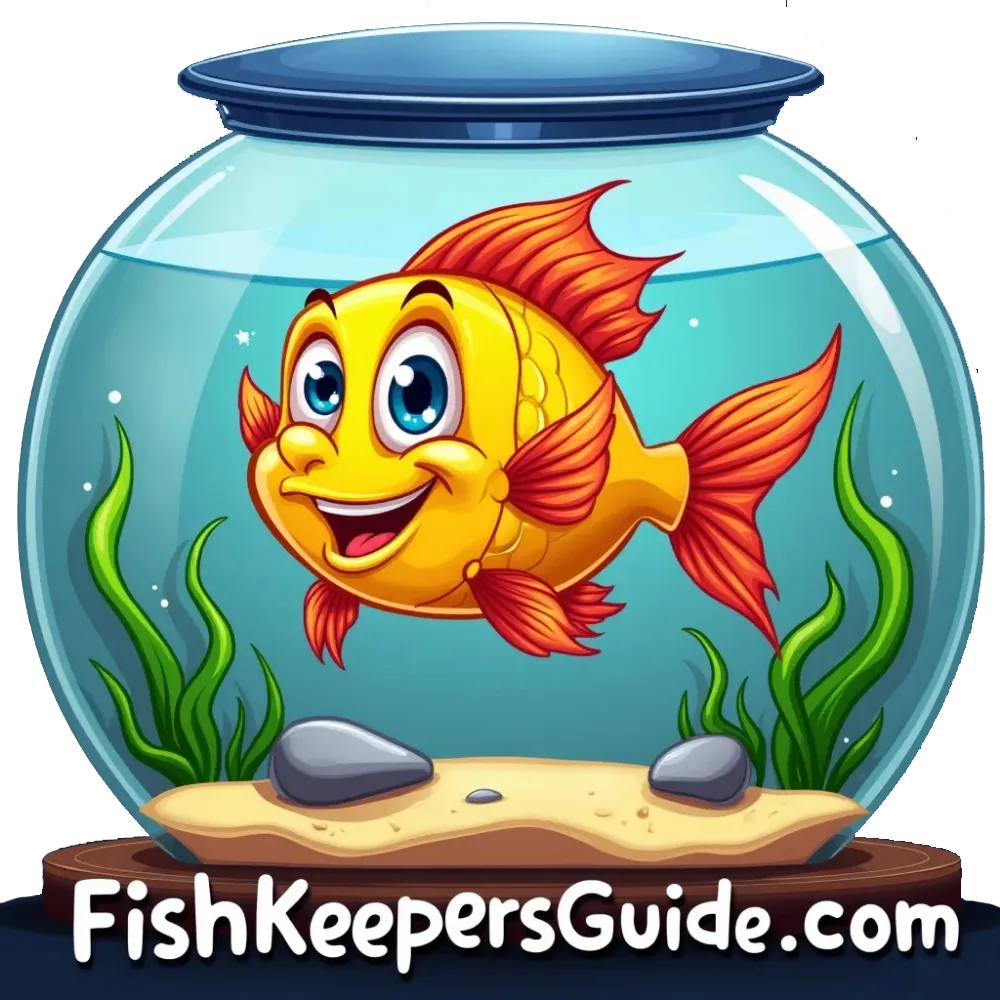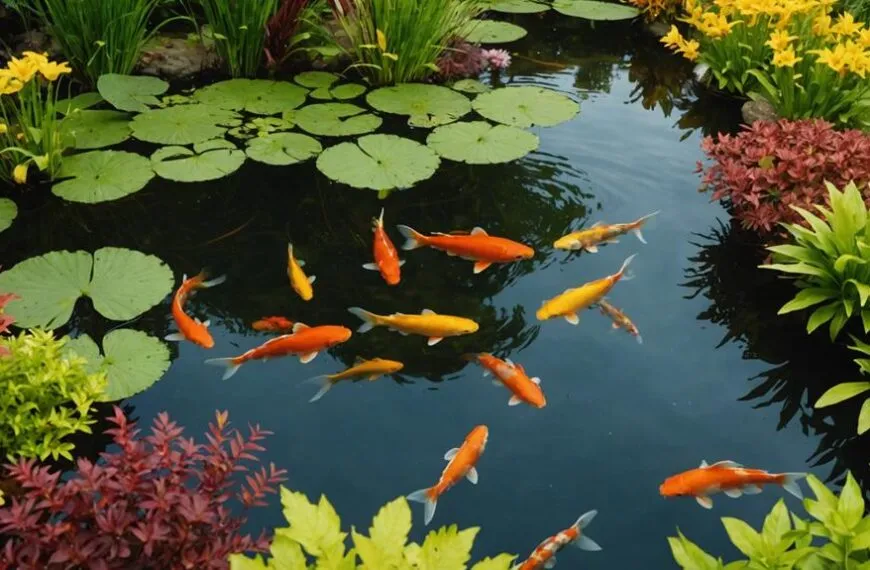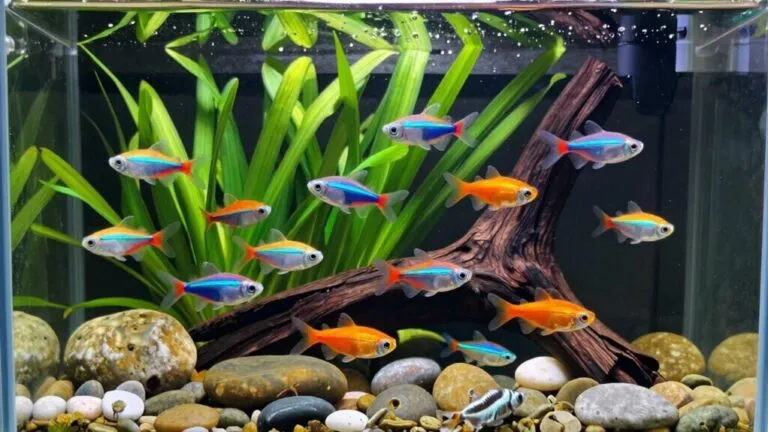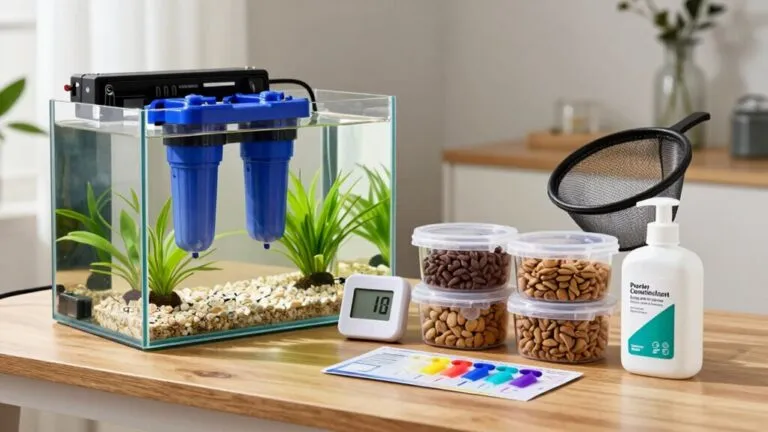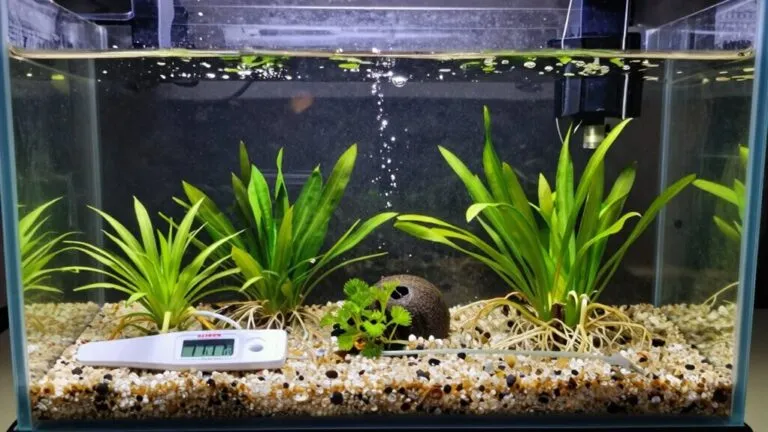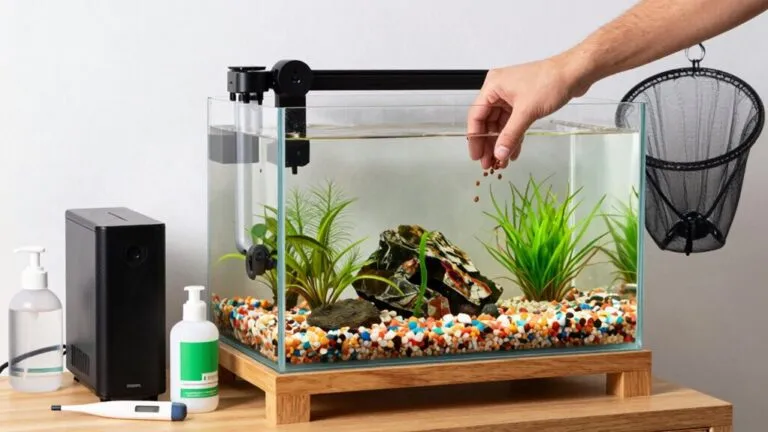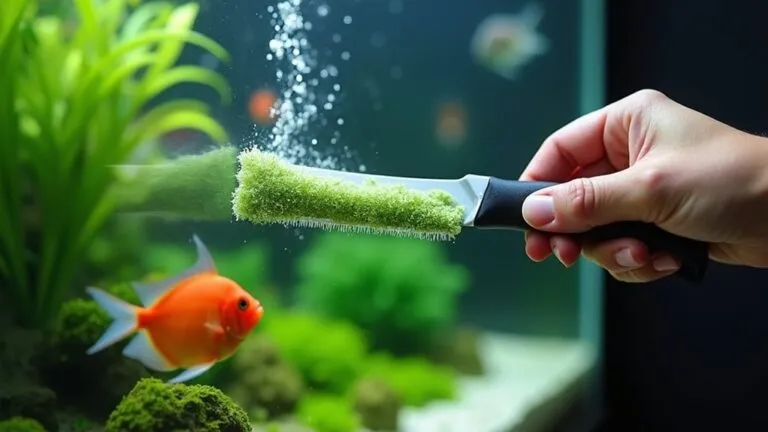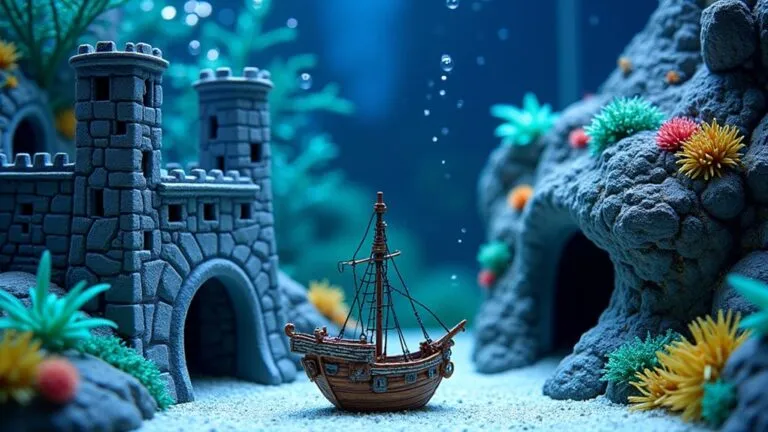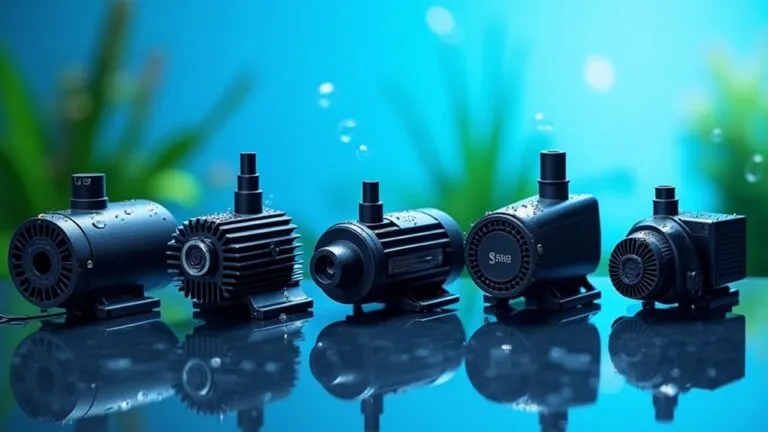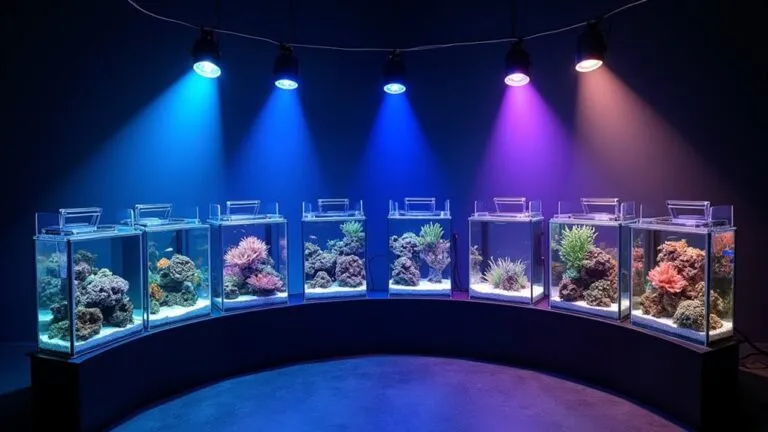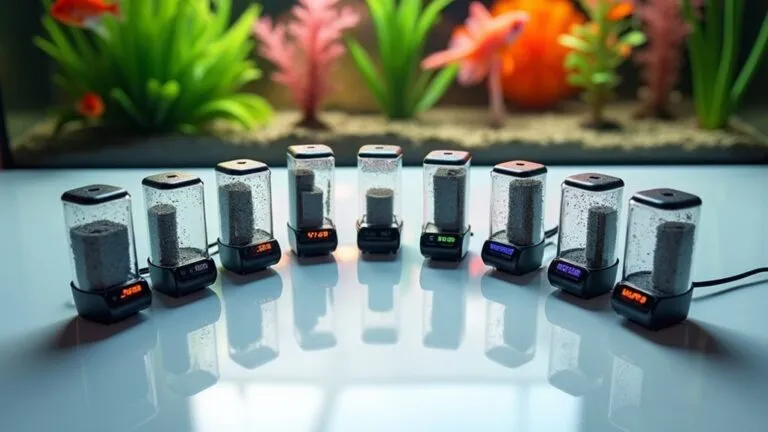To keep your fish thriving and dodge seasonal diseases, it's super important to do a few key things. First, observe your fish daily for any signs of stress or illness, like weird spots or loss of appetite. Next, maintain water quality—testing for pH and other factors is crucial. Don't forget about nutrition; tailor their diet to the season to boost their immune systems! Quarantine any new fish to avoid surprises, and manage environmental stress by providing hiding spots and maintaining a stable water temperature. Stick around, and you'll discover more great tips to ensure your aquatic friends stay healthy!
Contents
Daily Observation Practices
Daily observation practices are crucial for maintaining the health of your fish. You mightn't think of it this way, but your daily checks can make a huge difference.
Take a moment to watch their behavior, appearance, and eating habits. If you notice them acting a bit off, like not swimming around or skipping meals, it could be a sign of disease or other potential health issues.
Regular monitoring of water quality parameters is also essential, as poor water conditions can lead to stress and susceptibility to diseases.
Keep an eye out for any visible signs of illness, such as unusual spots or fin damage. These can indicate underlying problems that need your attention.
It's also important to assess the water quality regularly. A quick water test for pH, ammonia, and nitrite levels can help you catch poor water quality before it stresses your fish.
When you're feeding fish, don't just toss the food in and walk away. Watch them closely! Changes in appetite or social behavior can signal health problems.
By incorporating these daily observation practices, you're not just a fish keeper; you're a true fish advocate, ensuring your aquatic friends thrive in their environment.
After all, a happy fish makes for a happy pond!
Maintain Water Quality
To keep your fish healthy and thriving, maintaining water quality is essential. Start by regularly testing your pond water with specialized kits. Monitoring pH, ammonia, nitrites, and nitrates helps ensure levels stay optimal for your fish's well-being.
Healthy water quality promotes stable nitrogen cycles and reduces harmful compounds. Don't forget to conduct partial water changes of 30-50% at least once a month; this dilutes toxins and improves water cleanliness, especially during treatment periods.
Investing in a high-quality filtration system, particularly one with activated carbon, can work wonders. It efficiently removes pollutants and maintains clear water, free of harmful bacteria. Plus, it's like giving your fish a spa day!
Adequate aeration is another key factor. Using aerators or fountains increases oxygen levels, keeping your fish lively and stress-free.
Lastly, keep an eye on debris and regularly clean the pond. Excess organic matter can lead to environmental problems and, in turn, diseased fish.
Provide Proper Nutrition
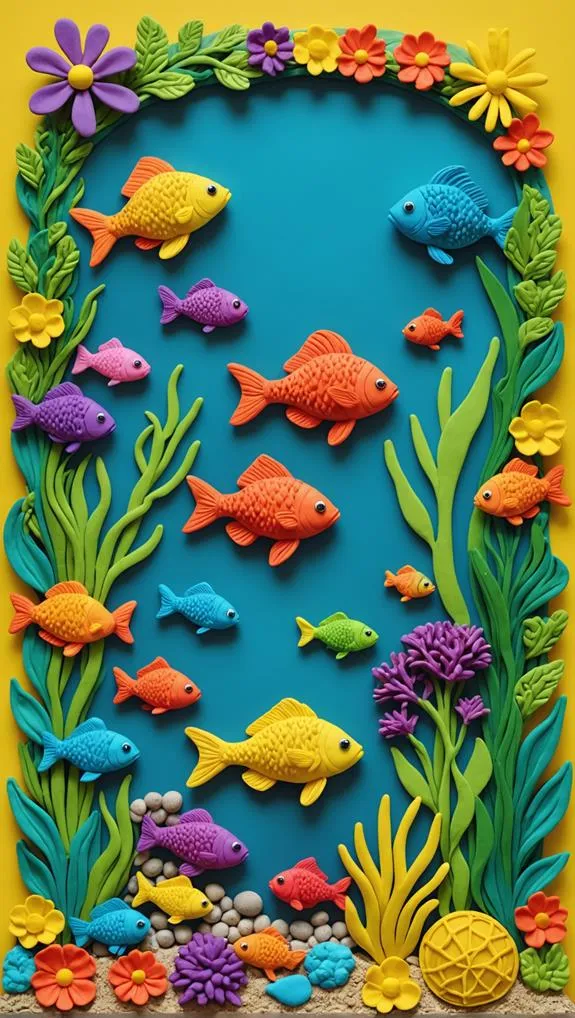
Providing proper nutrition is crucial for maintaining healthy fish and preventing disease, especially as seasons change. Just like us, fish need a balanced diet filled with vitamins and minerals to stay strong and resist illness.
In the summer, you should focus on high-protein foods to support their growth, especially for species like Endlers that thrive in vibrant, active environments. When winter rolls around, switch to energy-dense options to help them cope with the colder temperatures.
It's essential to regularly assess the dietary requirements of your fish. Herbivores, carnivores, and omnivores all have unique needs. Ignoring these can lead to malnutrition, which can compromise their health.
Imagine your fish feeling sluggish or unwell, simply because they weren't fed right!
Don't forget about the quality of your feed. Ensure it's free from contaminants like aflatoxins, which may sneak in through moldy storage. These toxins can create a perfect storm for diseases.
Seasonal dietary adjustments can also prevent deficiencies, especially in critical nutrients like vitamin C, which fish absolutely need.
Quarantine New Fish
Adding new fish to your pond can be exciting, but it's important to take precautions to protect your existing stock. One of the best ways to do this is to quarantine new fish for 2-4 weeks in a separate tank. This period allows you to monitor for any signs of common fish diseases before they mingle with your healthy fish.
During quarantine, keep an eye out for symptoms like clamped fins, lethargy, or unusual swimming behavior—these could indicate sick fish. It's also wise to apply preventative measures, such as using KnockOut Plus for seven days while your new buddies are getting settled.
Make sure your quarantine tank is cycled correctly and maintains optimal water parameters. This helps reduce stress and supports their immune systems so they can thrive.
Remember, patience is key! Avoid the temptation to shorten the quarantine period. Extra time can help you catch potential issues that might otherwise slip by unnoticed, preventing the spread of diseases to your healthy fish.
Manage Environmental Stress
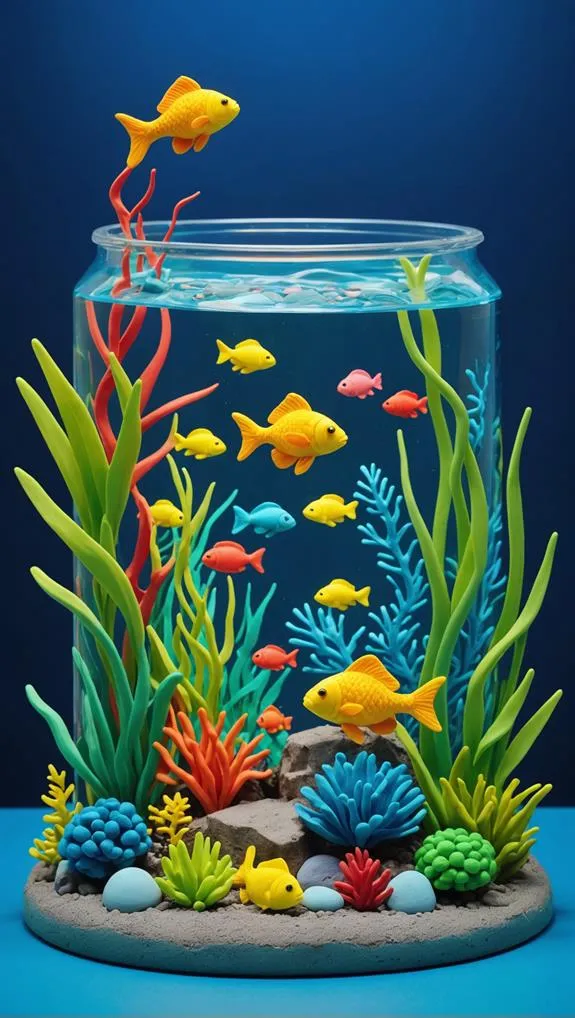
While managing environmental stress is crucial for keeping your fish healthy, it starts with ensuring optimal water quality. Regularly test your water parameters like pH, ammonia, nitrites, and nitrates.
Poor water conditions can ramp up stress levels, making your pond fish more susceptible to issues like secondary bacterial infections.
One way to reduce stress is by maintaining low fish density. Aim for about 50 cm of fish length per 1,000 liters of water. Crowded conditions can make fish feel cramped and uneasy.
Plus, adding plants and hiding spots can give your fish a sense of security, allowing them to chill out and act naturally.
Temperature fluctuations can also trigger stress, so keep an eye on it. Using a pond aerator during warmer months can help oxygenate the water and keep everyone cool.
Frequently Asked Questions
How to Prevent Diseases in Fish?
To prevent diseases in fish, ensure water quality through regular monitoring, practice quarantine procedures for new arrivals, enhance habitats with enrichment, reduce stress, and provide dietary supplements to boost immunity and support optimal tank maintenance.
How Can We Save Fish From Disease?
Think of your fish as athletes; they thrive with proper training. Focus on water quality, stress management, nutrition balance, and quarantine practices. Implement breeding programs to ensure strong, resilient fish health against environmental factors and diseases.
What Preventive Measures Can Be Done to Eliminate Parasites in Fish?
To eliminate parasites in fish, focus on parasite identification, maintain water quality, practice tank hygiene, and adopt dietary strategies that enhance host resistance. Implementing natural treatments and mindful breeding practices also significantly reduces infestation risks.
How Do You Prevent Fish Handler Disease?
To prevent fish handler disease, prioritize hygiene practices, use proper equipment, and wear protective gear. Regular training and public education on sourcing techniques can enhance fish health and safeguard you and your community.
Final Thoughts
So, there you have it! By keeping a close eye on your fish, maintaining crystal-clear water, feeding them nutritious meals, quarantining new pals, and managing those pesky environmental stressors, you'll be on your way to a fish paradise. Seriously, your fish will be so happy, they might just start doing the cha-cha in their tank! Remember, a little effort goes a long way in keeping your aquatic friends healthy and thriving, and you'll avoid those dreaded seasonal fish diseases.
